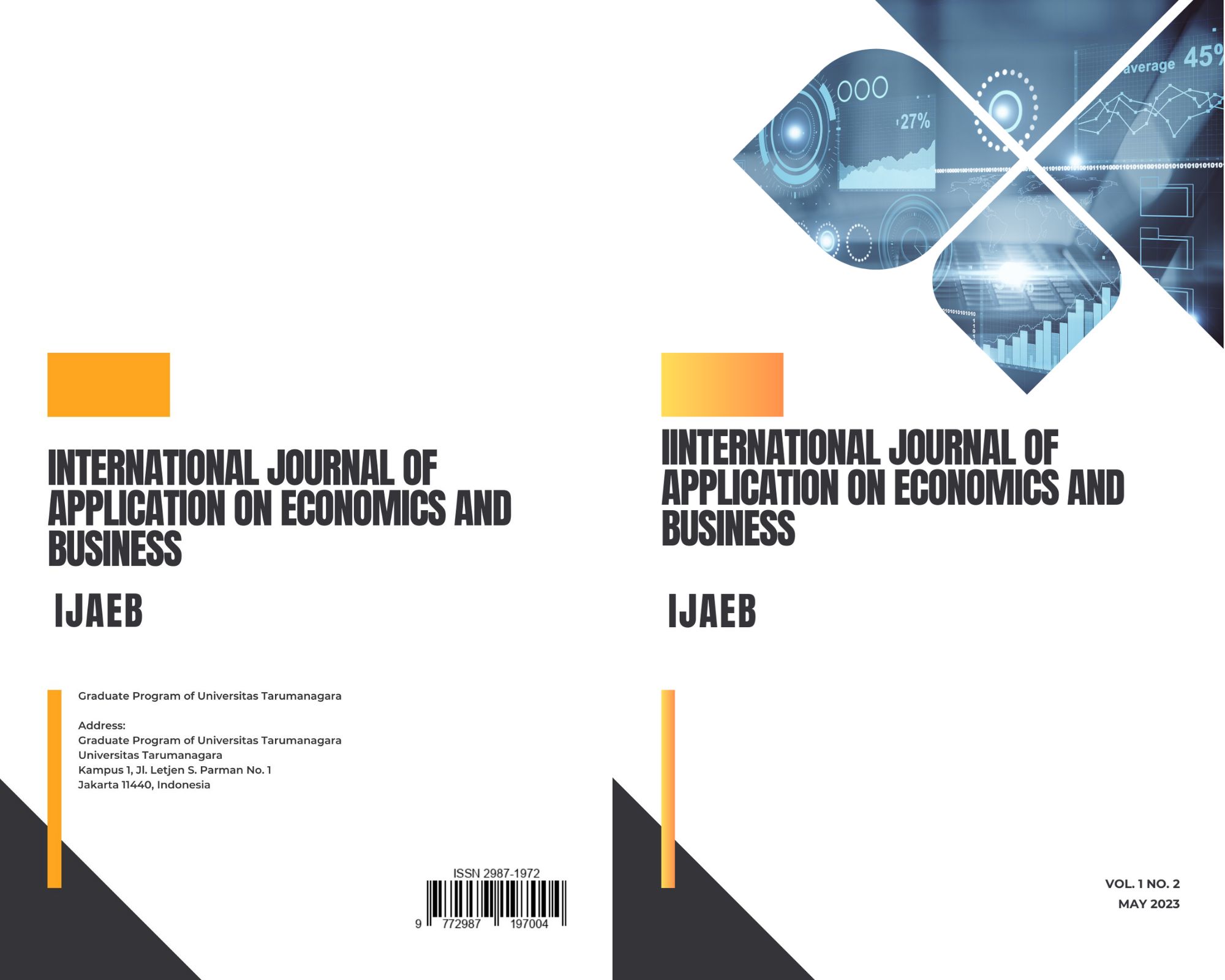FACTORS INFLUENCING LOCAL BEAUTY PRODUCT REPURCHASE INTENTION
Main Article Content
Abstract
The objectives of this study are to analyze and determine factors affecting repurchase intention of beauty products from local brands in Jakarta. The factors that will be analyzed for their influence on repurchase intentions include trust, word-of-mouth, and adjusted expectations. This study used a quantitative method by distributing questionnaires to 191 respondents who are the millennial generation living in DKI Jakarta and have at least bought and/or used local brand beauty product once in the past year. The collected 163 valid data is then processed using the PLS-SEM method with the SmartPLS statistical data processing tool. From this study, it can be concluded that trust, word-of-mouth, and adjusted expectations have a significant influence towards the repurchase intention of local brand beauty product consumers.
Article Details
Section

This work is licensed under a Creative Commons Attribution-NonCommercial-ShareAlike 4.0 International License.
This journal provides immediate open access to its content on the principle that making research freely available to the public supports a greater global exchange of knowledge.
IJAEB by Graduate Program of Universitas Tarumanagara is licensed under a Creative Commons Attribution-NonCommercial-ShareAlike 4.0 International License.. Permissions beyond the scope of this license may be available at https://journal.untar.ac.id/index.php/ijaeb
References
Antara News, Kemenperin: Industri kosmetik tumbuh signifikan pada 2020, 2021. From: https://www.antaranews.com/berita/2003853/kemenperin-industri-kosmetik-tumbuhsignifikan-pada-2020
Kemenperin, Perubahan Gaya Hidup Dorong Industri Kosmetik, 2020. From: https:// kemenperin.go.id/artikel/21460/Perubahan-Gaya-Hidup-Dorong-Industri-Kosmetik
Coresight Research, Millennials and Beauty, 2020. From: https://coresight.com/research/ millennials-and-beauty/
Keni, K., How Perceived Usefulness and Perceived Ease of Use Affecting Intent to Repurchase, Jurnal Manajemen. 24(6) (2020) 481-496. DOI: http://dx.doi.org/10.24912/ jm.v24i3. 680
Lin, C. & Lekhawipat, W., Factors affecting online repurchase intention, Industrial Management & Data Systems. 114(4) (2014) 597-611.
Moslehpour, M., Wong, W.-K., Pham, K.V. & Aulia, C.K., Repurchase intention of Korean beauty products among Taiwanese consumers, Asia Pacific Journal of Marketing and Logistics. 29 (3) (2017) 569-588. [7] Hendro & Keni, eWOM dan trust sebagai prediktor terhadap purchase intention: brand image sebagai variabel mediasi, Jurnal Komunikasi. 12(2) (2020) 298-310. DOI: http:// dx.doi.org/10.24912/jk.v12i2.7760
Garcia, J.M., Freire, O.B.D.L., Santos, E.B.A., & Andrade, J., Factors affecting satisfaction and loyalty to online group buying, Revista de Gestão. 27(3) (2020) 211-228. DOI: https://doi.org/10.1108/REGE-02-2018-0037
Keller, K. L., Strategic Brand Management: Building, Measuring, and Managing Brand Equity, 4th ed., Pearson, United Kingdom, 2013.
Wijaya, H. & Keni, Pengaruh Service Quality, Word of Mouth, dan Brand Awareness terhadap Keputusan Pembelian Polis Asuransi Kendaraan di Jakarta, Jurnal Manajemen Bisnis dan Kewirausahaan, 5(5) (2021) 518-523. DOI: http://dx.doi.org/10.24912/jmbk. v5i5.13303
Ha, H., Denise John, J., John, J. & Kim, N., The critical role of marketer's information provision in temporal changes of expectations and attitudes, Journal of Consumer Marketing. 30(4) (2013) 355-365. DOI: https://doi.org/10.1108/JCM-02-2013-0459
Lagita, L., & Briliana, V., Pengaruh customer satisfaction, adjusted expectation, perceived value, dan perceived usefulness terhadap online purchase intention pada pelanggan Lazada, Jurnal Wira Ekonomi Mikroskil, 8(1) (2018) 37-48.
Rufín, R., Medina, C., & Rey, M., Adjusted expectations, satisfaction, and loyalty development, The Service Industries Journal. 32(14) (2012) 2185-2202. DOI: https://doi.org/10.1080/02642069.2011.594874
Izogo, E.E., Structural equation test of relationship quality: Repurchase intention – willingness to recommend framework in retail banking, International Journal of Emerging Markets. 11(3) (2016) 374-394. DOI: https://doi.org/10.1108/IJOEM-07-2015- 0130
Li, C.-H. & Chang, C.-M., The influence of trust and perceived playfulness on the relationship commitment of hospitality online social network-moderating effects of gender, International Journal of Contemporary Hospitality Management. 28(5) (2016) 924- 944. DOI: https://doi.org/10.1108/IJCHM-05-2014-0227
Milan, G. S., Zanchet de Lima, V., Eberle, L., De Toni, D., & Bebber, S., Repurchase intent antecedents of a competitive brand in the smartphones segment, Journal of Marketing Communications. 25(5) (2017) 457-476. DOI: https://doi.org/10.1080/ 13527266. 2016.1278257
Ha, H., Janda, S. & Muthaly, S.K., A new understanding of satisfaction model in e‐re‐purchase situation, European Journal of Marketing. 44(8) (2010) 997-1016. DOI: https:// doi.org/10.1108/0309056101107490
Trivedi, S.K. & Yadav, M., Repurchase intentions in Y generation: mediation of trust and e-satisfaction, Marketing Intelligence & Planning. 38(4) (2020) 401-415. DOI: https://doi.org/10.1108/MIP-02-2019-0072
Yanico, Y. & Keni, K., Perceived ease of use, trust, dan customer satisfaction sebagai prediktor terhadap repurchase intention, Jurnal Manajemen Maranatha, 20(2) (2021) 107-118. DOI: https://doi.org/10.28932/jmm.v20i2.3244

